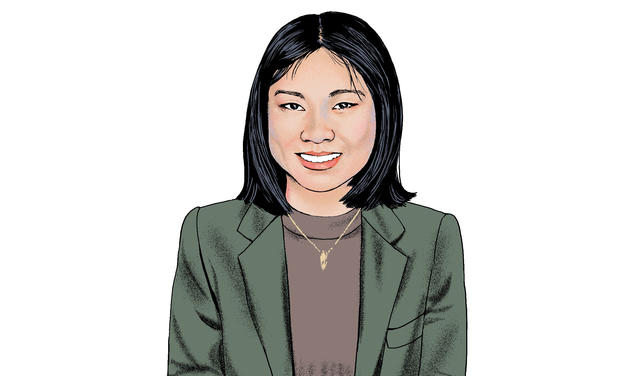
When Lyra Olson ’16 went to the Eastern tryouts for the U.S. under-23 women’s ultimate Frisbee team last fall, she was amazed by the talented players around her. “These girls were just ballers,” she said. “It was the highest level of competitive ultimate I’d ever been in.”
Olson, in just her third year playing ultimate, admits that her skills may have been a notch below the top players. But she made her case with fitness, a valuable asset in a sport of near constant running and tournaments that routinely include two or three games in a day.
Olson was one of 24 women selected for the team, which traveled to London in July for the World Under-23 Ultimate Championships, held every four years.
For Olson, it was another highlight in a remarkable year that also included a trip to the national collegiate championships with the Princeton women’s team.
Olson began throwing a disc at an early age with father, Eric Olson ’80, who played ultimate as a Princeton undergrad. But she didn’t have a chance to play on a team until college. (In high school, she was a devoted violinist as well as a field hockey player and self-described “fitness junkie.”)
At Princeton, Olson immediately took to the ultimate community and the sport’s ethos. There are no referees on the field in ultimate. Players enforce the rules, and each competitor is expected to uphold the “spirit of the game.” That may sound wishy-washy, Olson says, but it’s not: After each game, teams rate their opponents on things like rules knowledge, fair-mindedness, and communication.
Olson and the U.S. team earned high marks from their peers at Worlds (winning the spirit trophy) and nearly captured the women’s championship as well, falling 17-15 in the finals to Japan, a team the Americans had beaten in round-robin play. Olson credited the Japanese team for its precision and patience, playing a “nearly perfect game.”
Since coming home, Olson has been working in the lab of Princeton psychology and neuroscience professor Elizabeth Gould and competing with a club ultimate team in Philadelphia, Green Means Go.
A rising senior, Olson hopes to attend medical school after graduation and continue to play ultimate. Though the sport won’t guide her next move, she laughs, “there’s definitely a strong overlap between where I’m applying and where there are strong ultimate communities.”










0 Responses